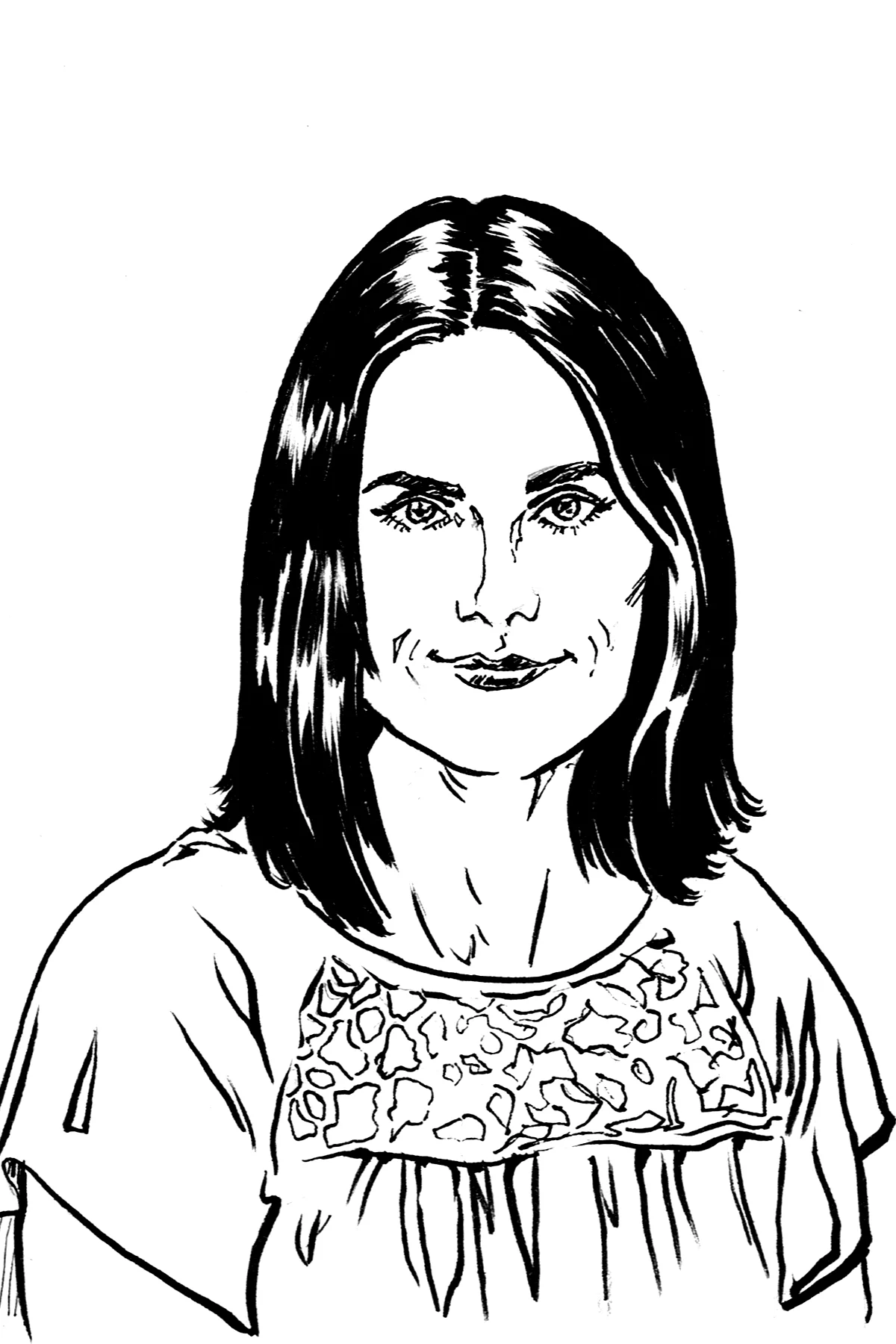PARKDALE LIBRARY'S FREE INSTRUMENT-LENDING PROGRAM SHOWS US AT OUR BEST
FROM MARCH 2020 ISSUE OF WEST END PHOENIX
ILLUSTRATION BY Frank Fiorentino
In a glass-fronted room at the Parkdale Library, the shelves are mostly bare. Here, an ordinary library card allows anyone to take home an instrument for three weeks for free, with the option of two renewals: That’s nine weeks to get the xylophone out of your system, or write a love song on a banjo, or decide if it’s worth investing in a steel pan drum for your 10-year-old. On a cold Friday night, a large white case holding a cello lies sleepily on its side under a desk, marked with a “TO REPAIR” tag – a donation, recently dropped off. Stringed instruments and keyboards go fast, but there is a left-handed guitar and some African drums – a djembe, some bongos – waiting to be checked out; the latter are less loved in the winter than the summer months when the drum circles break out in Trinity Bellwoods Park.
Naturally, Toronto’s first musical-instrument-lending library, an initiative of Sun Life, bolstered by personal donations, would open in Parkdale: Toronto’s West End has the highest number of musicians and songwriters in Canada, according to the Society of Composers, Authors and Music Publishers of Canada (SOCAN). Music flows to community, community to music, a two-way current that animates the neighbourhood, or at least an idealized version of it. Outside the newly renovated room where the instruments live, the library is packed, defiantly loud. Every computer is full. One table plays a rowdy game of cards. A toddler gripping a board book wails. Nobody minds.
The instrument-lending library’s existence is a necessary patch on a slow leak, as the sound of music in the West End, and the city, seems to be growing fainter. Live music venues are shuttering and younger musicians are fleeing impossible rents and unaffordability. The budget for itinerant music instructors in public schools, so many kids’ vital first point of contact with an actual ukulele or a recorder, has been slashed by $1.4 million. Music is at risk of becoming a luxury pursuit, available to those who can afford big tour tickets and private lessons, and an indulgence – or an absence – for everyone else. This is an affront to the neighbourhood; music pulled so many of us here to begin with. Now creaking into mid-life, I came of age in local bars and clubs, and I remember when music was everything and everywhere, and how its ubiquity left me feeling: moved, broken, giddy, i.e., alive. Now science has weighed in, with research affirming (as we already knew) that music is a depression-slayer, a breaker of isolation, a public-health boon, both when it’s heard and when it’s made. So who are we without it? And what is this neighbourhood?
A few days after visiting the library, which launched the instrument-lending program in 2016, I meet Tyde Cambridge at Grocery Coffee, a pocket-sized café and sandwich shop at Queen and Dowling. In a cozy back room overstuffed with second-hand furniture, its walls covered in local artists’ work, Cambridge, who is 56, talks about how music has wended its way through her life. She grew up singing in Montreal, belting “Somewhere Over the Rainbow” into a reel-to-reel tape recorder, in the studio she assembled in her bedroom at age eight. By her 20s, she would join warehouse jams in a former salt factory in Montreal’s east end, arriving at eight, going home at four in the morning. “You had to try all the instruments, or you had to leave.” She discovered that she was not a trumpeter, but could crack the code of the saxophone.
Cambridge sold T-shirts on the street and worked as a short order cook, settling in Parkdale in the late ’90s. She made music and visual art, and remembers the neighbourhood as a place of impromptu blues jams that she would join at defunct bars like Not My Dog. “You’d hear everything. The bagpipes would be going and then okay, it’s time to cross the street and go see a band and then there’d be two sets of wild Celtic fusion rock music and then dance, dance, dance, dance, and then go home.”
Several years ago, Cambridge was felled by mental health issues, triggered by trauma, along with carpal tunnel syndrome and fibromyalgia. On disability, she sold most of her instruments and didn’t make music for five years. When the instrument library opened, she was in a period of remission, and the spark returned. Wanting to write new songs, she began borrowing instruments: a bass, a xylophone, a keyboard. She lives in a subsidized apartment near the library, so she can roll the instruments home in her shopping cart or on a dolly with ease, whereas the cost of renting from Long and McQuade is a financial hit, and a physical strain.
Caitlin Marshall, a Parkdale librarian, says that instrument borrowers are a varied lot: parents, seniors, international students who couldn’t afford to bring their instruments from their home countries.
The existence of an instrument library in Parkdale offsets, just a little, the tension spurred by gentrification. It’s that rarely executed best-of-us civic endeavour. It’s a soft place to land in a city that can feel punishing. Cambridge points out that if people engage with music through instruments, they’ll seek music live, too; a circle of revivification. When her health allows, she’s been performing on occasion, usually in events related to her activism around affordable housing. Music and housing are linked, she notes, in the hierarchy of needs. “Music is a necessary thing. Food, shelter, water, community, then culture,” she says. “People can’t live without music.”

